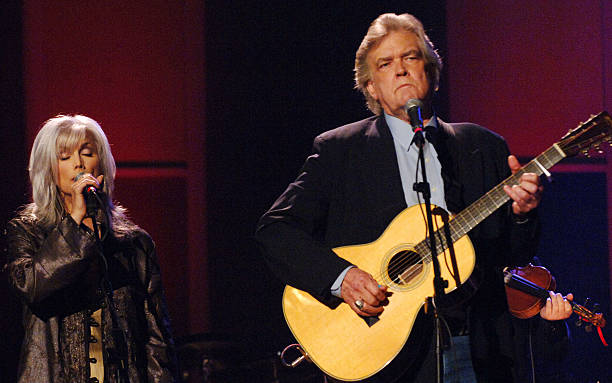
The Beautiful Art of Understatement in a Love That “Just Is”
There are love songs that storm the barricades of the heart with grand, sweeping orchestras, and then there are songs like “I Don’t Love You Much Do I,” which simply sit down next to you on the porch swing of a quiet evening. It’s the kind of song that defines the subtle, yet seismic, genius of Guy Clark, the master craftsman of the perfect phrase. Featured on his acclaimed 1992 album, Boats to Build, the version many of us hold dear is the exquisite duet with Emmylou Harris—a partnership whose voices together sounded like warm wood and brushed silver. Like much of Guy Clark’s work, which values narrative depth and lyrical honesty over commercial flourish, this song was not a mainstream chart hit, though its presence became a quiet, enduring cornerstone of the Americana and Folk music landscape. Its chart position was, instead, secured in the hearts of those who appreciate the true craftsmanship of a song well-made.
The story behind this gem lies in the collaborative brilliance of Guy Clark and co-writer Richard Leigh. It’s a beautifully simple concept, yet masterful in its execution: using the linguistic trick of understatement—the titular “I don’t love you much, do I?”—to express a boundless, uncontainable affection. The words are delivered with a gentle, rhetorical challenge, a question that answers itself immediately with a dazzling smile. It captures the comfortable, long-term love that no longer needs hyperbolic declarations, but rather relies on the shared history, the private language, and the sheer, physical evidence of devotion.
The meaning of the song is found in the delicious juxtaposition between the humble language and the cosmic scale of the emotion it describes. The lyrics move from the mundane and intimate (“Remember how I kissed you in the hall”) to the utterly grand and definitive: “Just more than anything else in this whole world.” And perhaps the most touching lines of all, which speak volumes to the enduring loyalty of a profound connection: “I’d follow you to hell and back again.” The chorus—”See how it sparkles in my eye / I couldn’t hide it if I tried and that’s right”—is the perfect, humble admission. The narrator knows his facade of nonchalance has failed, his heart’s truth betrayed by the sheer joy that his partner’s presence brings. It’s a love that is as necessary and natural as the seasons, as the line asserts: “Like spring doesn’t make the flowers bloom.”
When you hear Guy Clark‘s weathered, honest voice intertwine with the crystalline harmony of Emmylou Harris, it’s a moment of sheer magic. Their duet transmutes the song from a simple declaration into a shared, timeless whisper between two souls who have seen a lot of miles together. It is a portrait of love that has been tested and weathered, stripped of unnecessary sentimentality, leaving behind only the simple, hard-won truth: a devotion so vast it’s almost easier to pretend it doesn’t exist at all. For those of us who grew up listening to the intricate tales of the great Texas songwriters, this song remains a perfect artifact of quiet, devastating emotion.